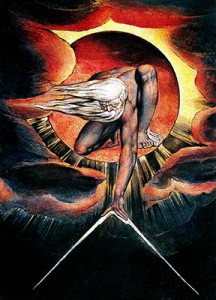 I’ve never really thought that the God of Jews and Christians (despite His rather mixed origins—check out the works of James Kugel on this topic) was a god to be compared with a Zeus or an Odin and I doubt if the leading ‘new atheists’ do either, so this piece by Fr. Robert Barron is, I suspect, largely an exercise in strawmanship:
I’ve never really thought that the God of Jews and Christians (despite His rather mixed origins—check out the works of James Kugel on this topic) was a god to be compared with a Zeus or an Odin and I doubt if the leading ‘new atheists’ do either, so this piece by Fr. Robert Barron is, I suspect, largely an exercise in strawmanship:
To a person, the new atheists hold that God is some being in the world, the maximum instance, if you want, of the category of “being.” But this is precisely what Aquinas and serious thinkers in all of the great theistic traditions hold that God is not. Thomas explicitly states that God is not in any genus, including that most generic genus of all, namely being. He is not one thing or individual — however supreme — among many. Rather, God is, in Aquinas’s pithy Latin phrase, esse ipsum subsistens, the sheer act of being itself.
It might be helpful here to distinguish God from the gods. For the ancient Greeks and Romans, for example, the gods were exalted, immortal, and especially powerful versions of ordinary human beings. They were, if you will, quantitatively but not qualitatively different from regular people. They were impressive denizens of the natural world, but they were not, strictly speaking, supernatural. But God is not a supreme item within the universe or alongside of it; rather, God is the sheer ocean of being from whose fullness the universe in its entirety exists.
“The sheer ocean of being from whose fullness the universe in its entirety exists.”
Oh dear.

Close to the Eidos of handwaving.
I’m not buying Fr. Barron’s argument. My Catholic school education taught me that God was a self-aware being that created the universe, and had a will. God even had three “parts”: the Father, the Son, and the Holy Spirit. God was not simply “an ocean of being”. Perhaps Fr. Barron is projecting a bit? He has lost some of his own faith and is taking it out on avowed atheists?
Personally, I am totally fine with Christians and other theists, ancient, medieval, or modern, talking about God with this sort of rhetorical flourish. I engage in this sort of thing myself from time to time. There is a quality about life that is ineffable and is difficult to describe in straightforward language.
The problem comes if and when theists, starting from there, tack on additional provisos such as, “And also, God has declared that XYZ is wrong and is prohibited on pain of stoning”, or “And also, God has declared that I am the rightful owner of [your land / your wife / etc.]” The sheer ocean of being is surprisingly much of a micromanager!